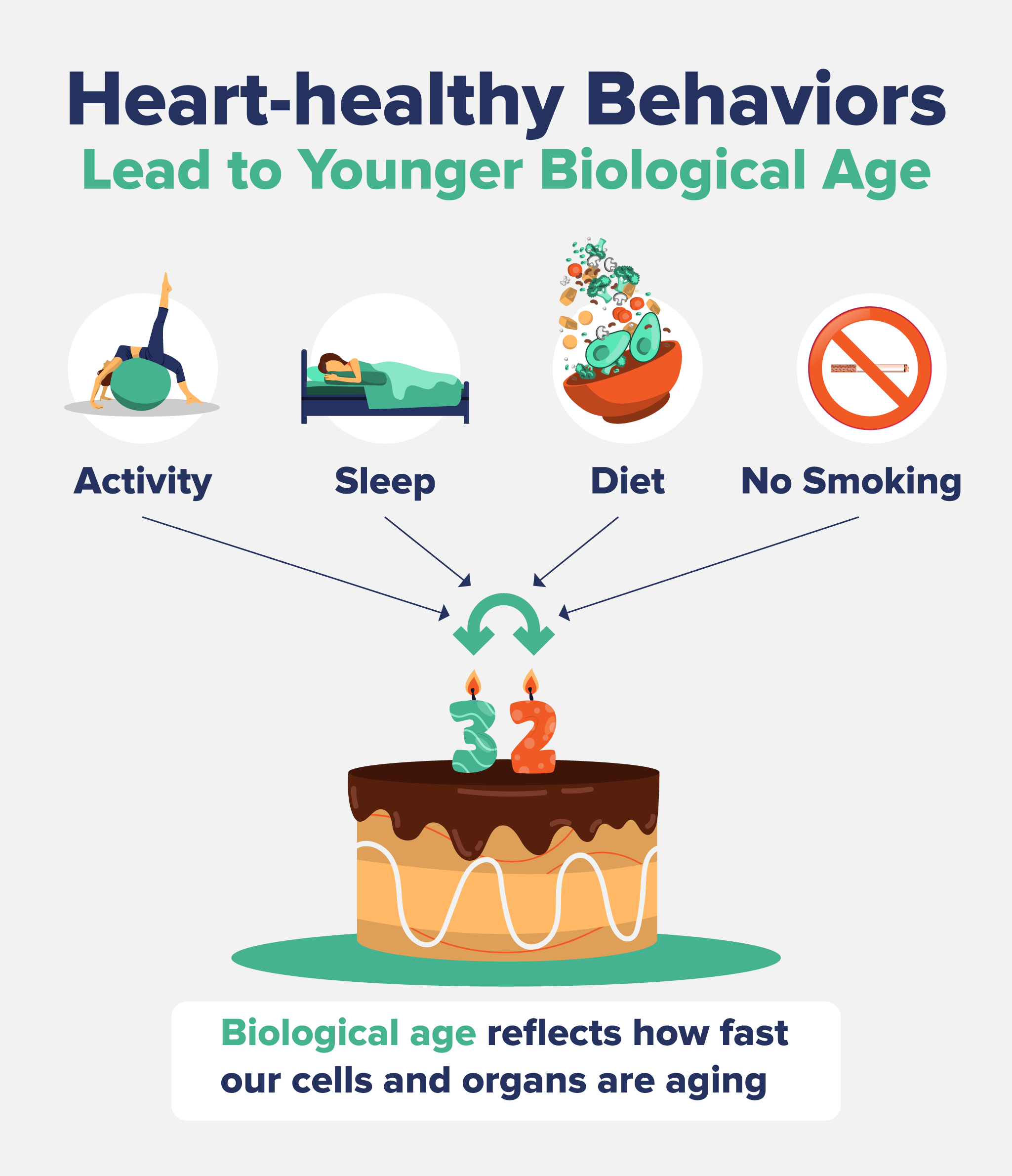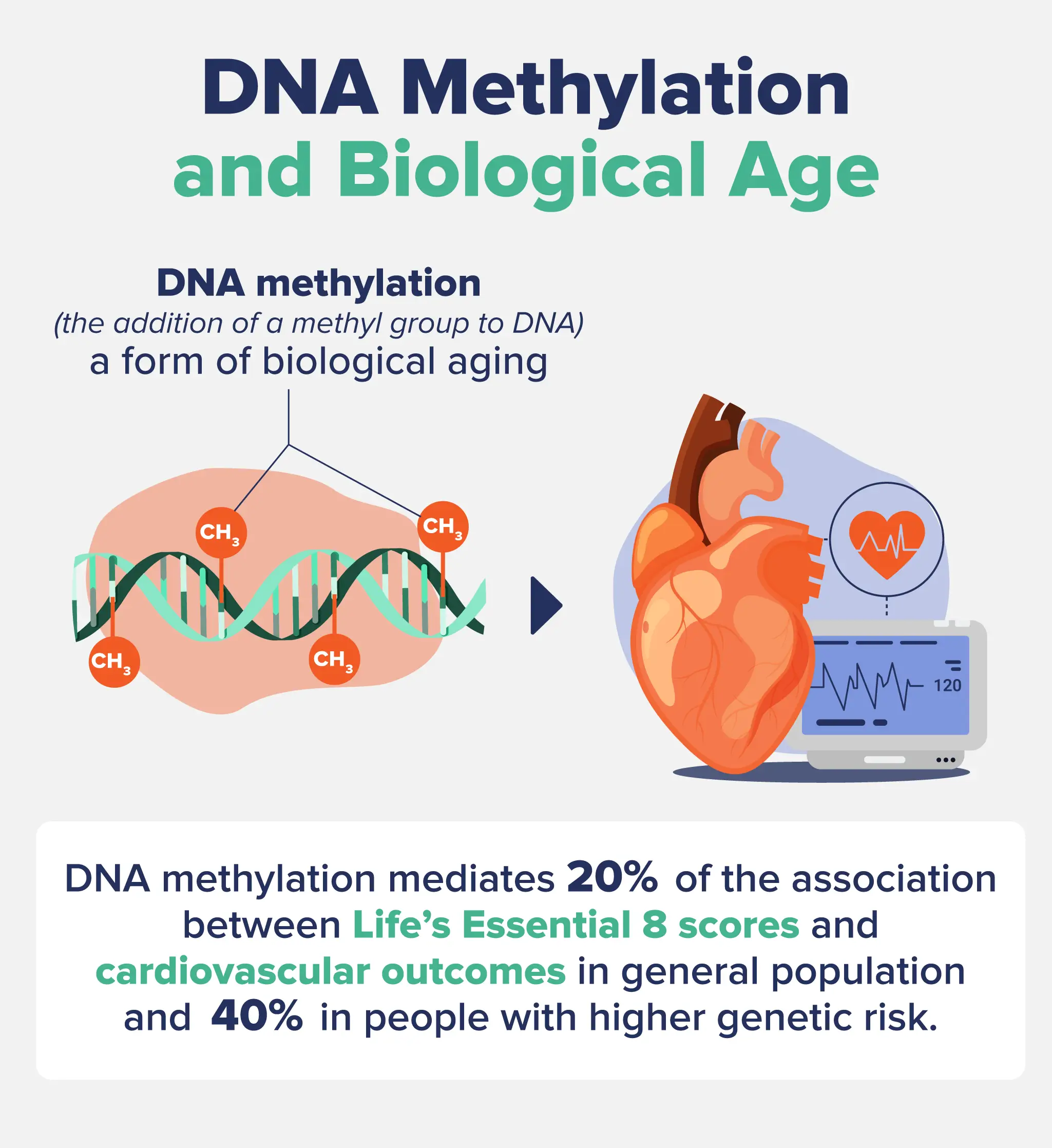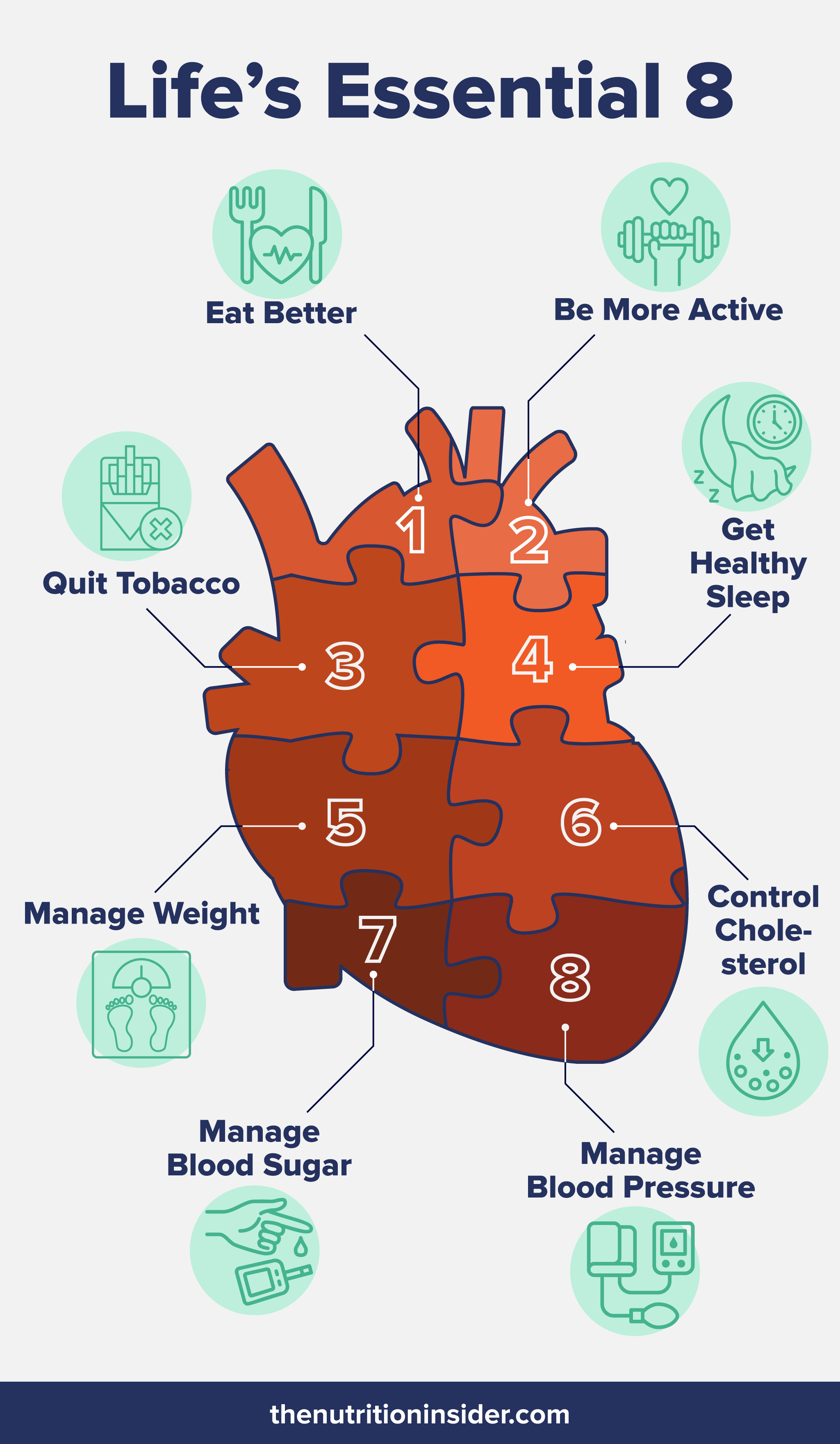This post contains links through which we may earn a small commission should you make a purchase from a brand. This in no way affects our ability to objectively critique the products and brands we review.
Heart-Healthy Behaviors Help Reverse Cell Aging
Evidence Based Research To fulfill our commitment to bringing our audience accurate and insightful content, our expert writers and medical reviewers rely on carefully curated research.
Read Our Editorial Policy
It seems pretty obvious that heart-healthy behaviors are, well, good for your heart.
But did you also know that they can slow down aging?
In a new May 2024 study published in the Journal of the American Heart Association, researchers found that people who follow more heart-healthy behaviors have a younger biological age in addition to a reduced risk of heart disease, stroke, and mortality from these conditions.1
Keep reading to learn exactly what your biological age is, how it’s measured in changes to our DNA, and what behaviors were shown in this study to improve it.
Biological Aging 101
Although most people consider their age to be the number of candles on their birthday cake each year, biological aging is a different story.
As opposed to the chronological age seen on our birth certificate, biological age reflects how fast our cells and organs are aging.2

While chronological and biological age tend to line up pretty closely during our younger years (i.e., a 25-year-old will also have cells and organs of roughly the same age), they can drift further apart as we grow older.
You’ve probably seen accelerated (or reversed) biological aging in action if you’ve ever met a 65-year-old who looks two decades younger or a weathered 40-year-old who looks like they’re headed for retirement.
Although biological age is primarily internal, much of that damage can also show up externally in wrinkled faces, sagging skin, and frail bodies.
People with accelerated biological ages are also more likely to experience an earlier onset of age-related chronic diseases, ranging from heart disease to dementia.
Some things are out of our control when it comes to aging (like the genetics we were born with), but many other factors are in our control that can change biological age. Some of these factors are healthy habits (like diet, sleep, and exercise) that can keep you biologically young regardless of your chronological age.
The choices we make every day can impact various cellular and physiological processes that either speed up or slow down the aging process, as this study exemplified.
Using DNA Methylation as a Marker of Biological Age
Researchers use several biological methods to assess how quickly your internal systems (like cells, organs, and tissues) are breaking down or deteriorating. The most common include telomere length, epigenetic changes like DNA methylation, and blood biomarkers.
In this study, researchers examined DNA methylation (the addition of a methyl group to DNA), which is considered a form of biological aging called epigenetic age.

The addition of a methyl group to DNA is a chemical change or “tag” on DNA. Although epigenetic changes can be passed along from parent to child, methylation does not change the actual DNA sequence you have.
Rather, epigenetic changes like DNA methylation affect how our cells read genes or whether specific genes are turned on or off—also known as gene expression.
Because aging and chronic disease can increase the amount of methylated DNA that someone has, epigenetic age tests (sometimes referred to as “epigenetic clocks”) are a good proxy for biological age.
Methylation also arises from lifestyle choices and environmental factors, like diet, exercise, sleep, pollution, and toxin exposure.
Healthy Behaviors Reduce Heart Disease Risk By 36%
In this study, researchers examined health data from 5,682 adults for up to 14 years.
They used the American Heart Association’s Life’s Essential 8 tool to score the participants’ behavior related to cardiovascular health (on a scale of 0 to 100), including dietary intake, physical activity, hours slept per night, and smoking status.
Specifically, the “eight” are eating nutritious whole foods, being more active, quitting smoking, getting enough sleep, and maintaining healthy body weight, cholesterol, blood sugar, and blood pressure levels.
Other clinical measurements were also taken, including body mass index, cholesterol, blood sugar, and blood pressure. Biological age was assessed based on DNA methylation and genetic risk profiles.
The research team found that for each 13-point increase in the “Life Essential 8” score, the risk of developing heart disease was reduced by about 35%.

Plus, mortality related to cardiovascular disease was reduced by 36%, and death from any cause was reduced by 29% when people followed these heart-healthy behaviors.
They also found that the Life Essential 8 score was much more likely to impact cardiovascular health outcomes in people with genetic susceptibility to accelerated biological age.
Similarly, DNA methylation was found to be a significant mediator between cardiovascular disease outcomes and health behaviors.
DNA methylation was found to mediate about 20% of the association between Life Essential 8 scores and cardiovascular outcomes. In people with higher genetic risk, the association was even higher, at almost 40%.
While it’s been known that health-related risk factors and DNA methylation are both independently associated with heart disease, this study shows that DNA methylation may actually be the mediator between the two.
Although getting your DNA methylation checked is not a widespread practice at the moment, the better message is to focus on those heart-healthy behaviors, including eating nutritious foods, being more active, quitting smoking, getting enough sleep, and maintaining healthy body weight, cholesterol, blood sugar, and blood pressure levels.
- Carbonneau, M., Li, Y., Prescott, B., Liu, C., Huan, T., Joehanes, R., Murabito, J. M., Heard-Costa, N. L., Xanthakis, V., Levy, D., & Ma, J. (2024). Epigenetic Age Mediates the Association of Life’s Essential 8 With Cardiovascular Disease and Mortality. Journal of the American Heart Association, 13(11), e032743. https://doi.org/10.1161/JAHA.123.032743
- Erema, V. V., Yakovchik, A. Y., Kashtanova, D. A., Bochkaeva, Z. V., Ivanov, M. V., Sosin, D. V., Matkava, L. R., Yudin, V. S., Makarov, V. V., Keskinov, A. A., Kraevoy, S. A., & Yudin, S. M. (2022). Biological Age Predictors: The Status Quo and Future Trends. International journal of molecular sciences, 23(23), 15103. https://doi.org/10.3390/ijms232315103
- American Heart Association. (2024). Life’s Essential 8™. https://www.heart.org/en/healthy-living/healthy-lifestyle/lifes-essential-8








